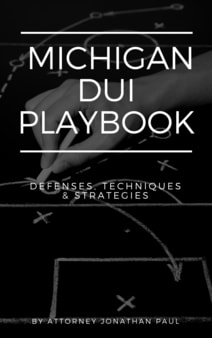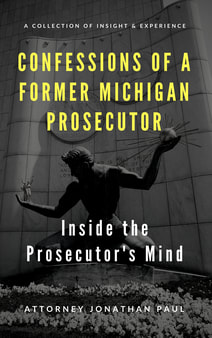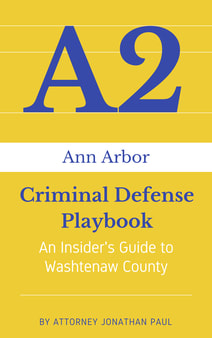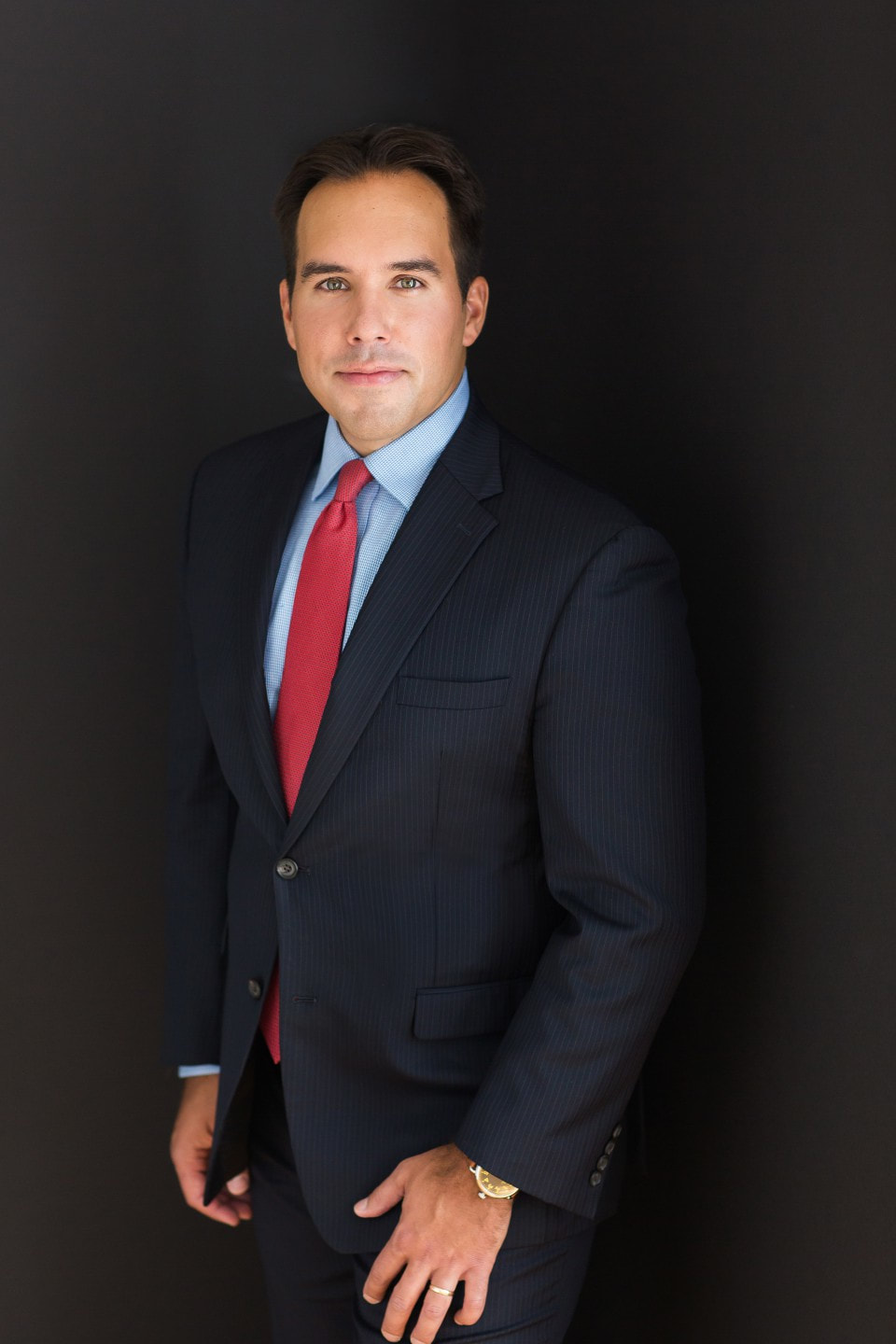Click Here to Call MeInside the Prosecutor MindAs a former prosecutor, I have a great insight into what the other side thinks about your case. I started my career as an Assistant District Attorney in Brooklyn, New York then as an Assistant Prosecuting Attorney in Oakland County, Michigan. As a prosecutor, I handled over 1000 cases, including misdemeanors, drunk driving cases and felonies. I've worked with various police agencies and victims of all different crimes. From a police officer making a traffic stop in a drunk driving case to a victim of a sexual assault, I've been on that side of the fence and built cases against first time offenders and hardened criminals.
A lot of my clients and their loving families tell me what a great person they are, how this has never happened before. Does this even matter? It may not matter as much as you think, but it could have some impact on your Michigan criminal case. Let me tell you a little bit about how your case gets started. As a defendant in a case, you are accused of doing something against the law. It may be alleged that you committed an instant offense in the presence of a police officer or a victim of a crime. It may also be possible that there is simply an investigation into allegations of a past offense. A Michigan drunk driving case is more of the instant offense where someone is arrested, evidence is collected and the person is soon charged. Whereas a Michigan home invasion offense may happen, and the police conduct an investigation into who may have possibly committed the offense. This may involve collecting fingerprints, checking pawn shop records, and taking witness statements. Simply put, the police department collect evidence of a crime then present this evidence to the prosecuting attorney. The prosecutor may charge various offenses based upon this information, may tell the police that more evidence is needed before charging or simply deny charges based upon the present evidence. For example, a Michigan criminal sexual conduct case could be denied, because there is not enough evidence of foul play, or the alleged victim may not remember exactly what happened. A Michigan prosecutor has an ethical obligation not to charge someone without the right amount of evidence. The opposite could be said about a drunk driving case, where someone is observed driving and there is a chemical test that reveals the driver's blood alcohol content was above the legal limit. This is more of an easy call for the prosecutor to charge the case.
A single set of facts could also bring a single charge or multiple charges. Most people think this is double jeopardy, but for the most part this is not where double jeopardy is applicable. Let's say you're pulled over for speeding, you're found to have consumed alcohol, marijuana is found in your pocket, you have a handgun on your front seat and a gym bag full of jewelry in the backseat. There are a number of possible charges here; the evidence may be there immediately on some charges, but may need further investigation or information about other charges. Being a good student or person will most likely not sway what you'll be charged with, but your criminal history could affect what you're charged with. I've seen first offenders get a break on lesser charges, whereas someone with a more extensive history may be charged with more serious charges based on the same facts. This may not be fair, but this is the reality of a prosecutor's mindset. Someone with a history is more likely to have committed this crime, and lets charge them with someone more serious. This does not apply to all prosecutors, but this conversation takes place everyday. Once charged with a Michigan crime, your case will be set for a court appearance. The prosecutor will not be in attendance for your arraignment. You do not have a right to an attorney at your arraignment, so you must hire your own attorney for this proceeding. At this court date, the judge will set your bond, which could include a substantial amount of money, which must be posted to keep you out of jail, and bond conditions like no consumption of alcohol. The prosecutor will usually not be involved in this process. If you're charged with a misdemeanor, you will have a pre-trial conference; if you're charged with a felony, you will have a preliminary examination set within 14 days. Most prosecutors are not reviewing your case, and breaking down the strengths and weaknesses like your attorney. Your attorney should have the informational edge at the beginning of your case. Most prosecutors will review the file, and come up with some sort of plea offer, which is set by his/her superiors and office protocol. The majority of counties in Michigan, including every large county has an elected prosecutor who hires assistant prosecutors. Your attorney will be working with the assistant prosecutors on your case, who will answer to their superiors. You will find that different counties view the same case in very different ways. For example, Oakland County is very tough on drunk driving cases, and a bit more lenient on domestic violence, whereas Washtenaw County is the exact opposite. This has nothing to do with the assistant prosecutors, this is simply top-down office preferences. Some counties make different things priorities. The assistant prosecutor will engage in some sort of plea bargaining with your lawyer, because the prosecutors job is more of a factory worker than individual counselor. The prosecutor sees your case as black and white, with no real attachment to your individual life or circumstances. Your case fits into a little office policy, and they simply offer what past defendants have been offered. It's quite possible that your attorney will share additional information, which could sweeten the plea deal, but some counties take hard stances on certain cases. It may take a lot of work on your attorney's part to get beyond these polices; occasionally your attorney may need to speak to a supervisor who has the ability to override certain policies. Most prosecutors are not looking to ruin your life, but are not going to work extra hard or go out of their way because of who you are. A lot of times it comes down to your attorney's relationship with the prosecutor, and how much work your attorney can make the prosecutor perform. It's easy for a prosecutor to say tough luck go to trial; your only option is to proceed to trial, which could expose you to considerable risk, which should and could be avoided with common sense negotiation. You need an attorney who will be able to take the right approach with different prosecutors, and make sure you're getting the best possible offer. You may not have any interest in exploring this option, but you should have the best possible options available. Most prosecutors don't take your case too personally except for some more serious felonies, which may shock the conscious of the community. Your attorney should be able to have some productive dialogue and pursue your goals, may it be avoiding incarceration, avoiding a felony or possible avoiding a conviction. If you're eligible for certain first offender programs, most prosecutors will not step in the way of this possibility. One thing to be wary about is the influence a prosecutor can have on the judge. Most prosecutors are "assigned" to a judge, whereas your attorney may only appear before a judge a few times a months, or never at all. A judge may be influenced by a prosecutor, because they must work together everyday, and don't want to rock the cradle of a comfortable situation. Having a good dialogue and working relationship with the prosecutor is a lot better than having an enemy in the courtroom. Of course there are times for true adversarial situations, but there should never be anything personal going on. This relationship should stay business-like and a prosecutor should not put the defendant in a worse position, because they don't like your attorney. Another factor an individual prosecutor must consider, or should I say his supervisors, is how the outcome will look in the media. If these cases were resolved in private with no chance of the results being released, defendants would receive less harsh outcomes, because it would make everyone's life a little easier. Because the media tracks and covers these cases, an elected official would be out of a job if they are seen as soft or easy on crime. This mindset comes into play for drunk driving, domestic violence and serious felonies. Here are a few observations on certain topics: Drunk Driving Cases - most Michigan prosecutors are guided by set office guidelines, and the prosecutor will simply tell your attorney what the best offer will be. There is usually very little room to negotiate here. Most prosecutors are well versed in taking these cases to trial, because they are somewhat standard and get easy over time. Except for the more complicated facts, a prosecutor can generally put on a decent amount of evidence, and will usually get a conviction unless there is some real question about the evidence. Domestic Violence - many counties have strict policies on these type of cases. These counties will not dismiss this type of case, because the victim makes a request. Once the arrest is made, and someone is charged, there is no voluntary dismissal. The case might be dismissed if the prosecutor cannot proceed, because the victim does not show up for court, but they could proceed without the victim, or simply re-charge the case over and over again. Some counties will listen to the alleged victim about the case, and could offer a reduction, or agree to a first offender program under MCL 769.4A. Some counties, like Washtenaw County will not go along with the first offender program if there are certain facts in the case, or allegations of past domestic violence. Prosecutors can become frustrated with these type of cases, because their witnesses are changing their statements, and fighting against the prosecution. Prosecutors are generally more emotionally invested in these cases, but these cases are more difficult to win at trial. Retail Fraud - probably one of the lowest priority cases for a prosecutor. Not that these cases aren't important, but the victim is usually a business, and nobody is at risk of being hurt. Sure prices may go up because of shoplifting, and companies suffer an economic harm, but a prosecutor is not going to get emotionally involved in someone stealing a DVD from Target. A prosecutor is not going to simply dismiss this case, because they are generally straight forward prosecutions, but there won't be much resistance in a non-jail negotiation, and a possible first offender program. Drug Crimes - while maybe not as low priority as a retail fraud, most prosecutors don't get too emotionally invested in a drug possession case. Even an allegation of a drug sale or distribution is not enough to get a prosecutor going. A prosecutor may feel bad for someone who has a real drug issue, but will usually paint this as black or white case, and usually will not have a problem with a non-jail or prison outcome for first offenders. A first time drug offender, may be able to keep a conviction off of their record with certain offenses, and/or a prosecutor may agree to reduce the original charge. There is somewhat of a hierarchy when it comes to what drug is involved; I would say marijuana and prescription drugs are on a lower level of concern for a prosecutor than say heroin or cocaine. Larceny/Robbery - While theft crimes aren't considered to be the most serious among prosecutors, when the victim is a person rather than a company, a prosecutor will be more emotionally involved. A prosecutor must deal with the victim and the victim's family and loved ones. A person may have lost property in the incident, been injured, or suffered emotional distress. When a person is violated or affected by your criminal actions, a prosecutor is not going to play ball as easily. Be prepared for a fight. Home Invasion/Breaking & Entering - while these crimes might not involve a victim being involved during the offense, the allegations are someone entered your home, business, vehicle etc. These are serious allegations, and big news-makers. If you're a first offender, you might get a decent offer, but if you have a criminal record, especially for a similar offense, do not expect many favors. Assault Crimes - while most assaults are misdemeanors, this type of offense is usually one of the most delicate type of crimes. Seems like a prosecutor would be "tougher" on a felony like a drug case, but the assault case ends up being A LOT tougher to negotiate a good outcome. In an assault case, there is a true "victim"; someone was physically injured or assaulted by the person charged. There could be injuries and extensive physiological harm; there could also be restitution involved. If you're charged with an assault crime, that is not domestic violence, the victim will have more of a say on the direction of the case, but don't expect much of a plea offer. If the assault is aggravated (injury requiring medical assistance) or felonious (involving a dangerous weapon) or involving a serious injury, the waters only get more difficult to navigate. It might be possible to be charged with multiple assault crimes where a prosecutor may offer to dismiss some charges for a plea to other charges. |
Pleading No-Contest - Most prosecutors are looking to make their life easier, and a plea is a plea. Most prosecutors will not have an issue with a defendant pleading no-contest as long as the defendant has any credible explanation such as civil liability or lack of memory. It's more likely that a judge will refuse to accept a no-contest plea rather than the prosecutor.
Sentencing in General - At the misdemeanor level, most prosecutors will not have much to say about a defendant's sentence. In Michigan, the probation department will make a recommendation, and the defense attorney will either ask for the court to follow the recommendation, or modify it in a favorable manner for their client. Some court's forget that the prosecutor is standing there, and for many courts, the prosecutor is not even in attendance. Things change a bit with felony offenses, but the Michigan sentencing guidelines will guide the prosecutor's advocacy; most prosecutors will simply ask the court to follow the guidelines. There are of course some cases where a prosecutor will be a true advocate for sentencing. This could very well hurt or favor a defendant; the prosecutor may push for the harshest sentence, or could be a joint advocate for a defendant, simply realizing that this particular defendant deserves a lesser sentence. Traffic Tickets - Most prosecutors will not put up much of a fight for a true traffic ticket i.e. a civil infraction. Things may change a bit if the ticket is written for a misdemeanor such as reckless driving, marijuana possession or drunk driving. The only concerns for a prosecutor are keeping the cop who wrote the ticket relatively happy with the outcome, and being somewhat consistent with his reductions. A prosecutor will easily annoy the police department, if they are constantly reducing points/fines, and stepping on the hard and sometimes dangerous work of the police department. Some officers will include notes with a ticket or call a prosecutor with comments, either it's ok to reduce the ticket or don't reduce this particular ticket. If your traffic ticket is set some sort of hearing, a prosecutor will wait for the officer to arrive before offering a reduction; if the officer is late or a no-show, most prosecutors will attempt to resolve the case without the officer's input. Resisting Arrest - This charge is particularly sensitive, because a police officer has been assaulted, disobeyed or obstructed in some way. Police officers have dangerous jobs and make the prosecutor's job possible; without arrests, there would be nothing to prosecute. A prosecutor should support and look out for an officer's best interest, and resolving these cases in lenient matters could really turnoff the police department. Most prosecutor's will solicit the input of a police officer who is the alleged victim of this type of offense. A lot will also come down to the facts of the case; was the officer punched in the face, or did the defendant simply make it difficult to be handcuffed? If an officer is physically attacked, these cases are less likely to be reduced. Resisting arrest is a felony, but is also charged as an "attempted" resisting arrest, which is a misdemeanor. Prosecutors will sometimes offer to drop the felony down to a misdemeanor in order to get an easy plea. In certain counties, the resisting arrest charge will accompany a greater amount of cases. I've seen the felony charged attached to drunk driving offenses where the defendant wasn't 100 percent cooperative, and the defendant's actions are a stretch for the resisting arrest charge . The prosecutor strategy is to offer to drop this "serious felony" for a plea to the drunk driving charge. The client is put in a difficult situation where they are forced to choose between going to trial on a felony resisting arrest (which is very easy to get a conviction on) and fighting the drunk driving, or pleading guility to drunk driving when they might have a good defense. Financial Crimes - Charges such as Uttering & Publishing and Embezzlement are "felonies", but except for the ordinary case, are usually on the low priority list for a prosecutor. A prosecutor's goal will be to make the victim "whole" by getting any lost property or money back from the defendant. The embezzlement charge is a felony if the amount is $1,000 and higher, which is usually the case in these type of cases. Most prosecutors except for the rare case will usually offer a misdemeanor charge in exchange for repayment of the money embezzled. A good example of this is a defendant who worked at a grocery store, and was caught taking money from the register. The amount is say $1,200 and the person is charged with felony embezzlement; for repayment of the $1200 to the grocery store, the defendant can usually plead down to a felony. The following observations do not pertain to any particular prosecutors office, but rather a collection of observations as both a prosecutor and criminal defense attorney in Michigan. The above results or examples are by no means supposed to be guarantees of outcome or expectations for any particular case. Each case will be evaluated on an individual basis by the prosecuting attorney. Criminal Sexual Conduct - Besides a homicide case, this is the most sensitive case a prosecutor will handle. The victim is extremely important in these type of cases, and extra attention is given to their wishes. Prosecutors will rarely if ever make any plea deals without the input of the victim and their family; this could work for or against someone charged with this type of crime. For example, if the charges stem from a statutory nature (legal but for victim's age) where the parties had otherwise "consensual sex" or "are in love", the "victim" in the case will usually be open to a favorable plea deal for the person charged with the offense. If the incident was non-consensual in nature, the victim is far less likely to want to do the charged party any favors. The one exception is if the prosecutor/victim want to avoid having the victim have to testify in court or be subjected to re-living the charged incident. Most prosecutors would prefer to cut a deal that avoids difficult testimony from the victim. In Michigan, prosecutors will usually make some sort of offer with the victim's blessing prior to a preliminary examination. Another thing that a prosecutor must factor into these type of cases is being able to prove their case beyond reasonable doubt at a trial. Many defendants dispute the lack of consent, and without additional evidence other than victim testimony, these are not the easiest cases to win at trial. If alcohol or drugs are involved, the victim may lack a clear recollection of the events, which weaken the prosecution's case. Minor in Possession - "Kids will be kids" - based on my experience, most prosecutors understand that a defendant charged with this offense is not a true hardened criminal. While this offense is a crime, most prosecutors are able to apply their common sense, and are open to negotiation. If negotiation with the prosecutor fails, there a number of first-offender avenues to explore with the court. Most of these cases are resolved with the MIP first-offender program or the Holmes Youthful Trainee Act. Occasionally, these cases are resolved with a plea to a lesser charged such as a civil infraction. |
|
Representing clients in Ann Arbor, Canton, Brighton, Howell, Saline, Adrian, Taylor, Plymouth, Northville, Westland, Ypsilanti, Pittsfield Township, Warren, Sterling Heights, Farmington, Pontiac, Romulus, Lansing, Novi, South Lyon, Southfield, Birmingham, Bloomfield Hills, Royal Oak, Troy, Rochester, Jackson, East Lansing, Garden City, Livonia, Dearborn, Detroit, St Clair Shores, Hazel Park, Ferndale, Madison Heights, Waterford, Milford, Shelby Township Clarkston, Oak Park, Berkley, Fraser, Sterling Heights, Clinton Township and others throughout Washtenaw, Wayne, Monroe, Jackson, Saginaw, Macomb, Ingham, Lenawee, Charlevoix, Ottawa, Clinton, Eaton, Kent, Crawford, Allegan, Emmet, Barry, Kalkaska, Berrien, St. Clair, Livingston, Oakland County & Northern Michigan
Representing clients faced with DUI/drunk driving, retail fraud/shoplifting, drug charges, MDOP, domestic violence, reckless driving, disorderly conduct, careless driving, leaving the scene of an accident, fake ID, open container, UIP, early termination probation and other misdemeanor and felony charges. |
Ann Arbor Office LocationPlymouth Office Location |







